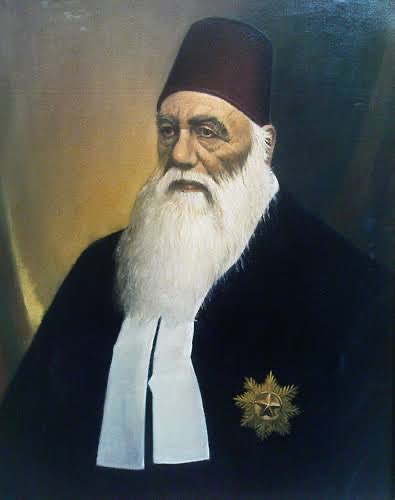
October 17, 1817 marks the birth of the renowned Islamic reformer, educationist, and philosopher, Syed Ahmed Taqvi bin Syed Muhammad Muttaqi, in Delhi, known to the Muslims of the subcontinent as Sir Syed Ahmed Khan.
After having witnessed the fall of the Mughal Empire, and catastrophic events of 1857 which resulted in the moral, social and economic decline of the Muslims of India, Sir Syed Ahmed Khan wrote his famous treatise “The Causes of the Indian Revolt” or “اسباب بغاوت ہند”.
“Do not show the face of Islam to others; instead show your face as the follower of true Islam representing character, knowledge, tolerance and piety.” — Sir Syed Ahmed Khan
In 1875, Sir Syed Ahmed Khan founded the Muhammadan Anglo-Oriental College at Aligarh, the first Muslim University of South Asia.
Sir Syed advocated Muslims to use knowledge as power to reclaim their rightful social and economic place in India.
Maulana Altaf Hali, in his biography of Sir Syed Ahmed Khan writes: “As soon as Sir Syed reached Muradabad, he began to write the pamphlet entitled ‘The Causes of the Indian Revolt’ (Asbab-e-Baghawat-e-Hind), in which he did his best to clear the people of India and especially the Muslims, of the charge of Mutiny. In spite of the obvious danger, he made a courageous and thorough report of the accusations people were making against the Government and refused the theory which the British had invented to explain the causes of the Mutiny.”
As a social reformer, educationist, author and Muslim revivalist, Sir Syed wrote innumerable journals, articles, translations, books and treatise to awaken the Muslims of India.
He advocated the use of Urdu, founded scientific societies and set upon establishing a “Muslim Cambridge” in India on the lines of the Oxford and Cambridge Universities in England.
As a visionary, Sir Syed knew that unless the Muslims became socially and economically secure they would fall subservient to the overwhelming majority of Hindus once the British exited.
He said: “Suppose that the English community and the army were to leave India taking with them all their cannons and their splendid weapons and all else, who then would be the rulers of India? Is it possible that under these circumstances two nations—the Mohammedans and the Hindus—could sit on the same throne and remain equal in power? Most certainly not. It is necessary that one of them should conquer the other. To hope that both could remain equal is to desire the impossible and the inconceivable.”
Sir Syed was farsighted & pragmatic enough to understand that in an undivided India, the majority would reign over the minority.
The MAO College was given the status of a University, in 1920, and became the hub of modernizing the Muslims of India, and its students became the hall-bearers of the demand of a separate homeland for Muslims of India: Pakistan.
The Quaid-e-Azam Muhammad Ali Jinnah called Aligarh “the arsenal of Muslim India” and AMU students were the forefront in the all-important elections of 1946, when the Muslim League swept the elections to make Pakistan a reality.
The Quaid-e-Azam Muhammad Ali Jinnah was a lifelong contributor to Aligarh Muslim University, where his portrait hangs even to this day.
Sir Syed Ahmed Khan played a pivotal role in awakening the Muslims of India, and in his stride, set the foundations for a Muslim revival, that helped shape the future course of history by providing Muslims the leadership for a demand of an Independent Nation-State.





